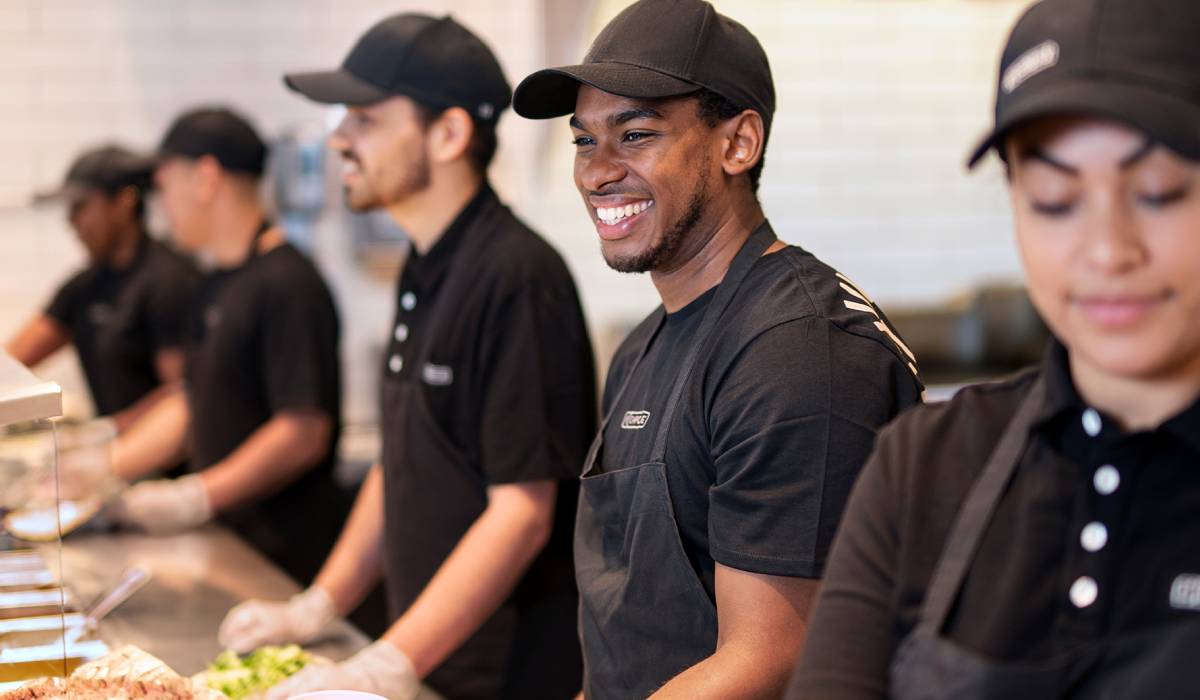
September 18th, 2024
As Gen Z increasingly joins the workforce, restaurants must adapt their management styles to meet the expectations and preferences of this generation. Born between 1997 and 2012, Gen Z brings new dynamics to the workplace, valuing flexibility, clear communication, and purpose-driven work. According to a report by LinkedIn, 76% of Gen Z employees believe learning is key to career success, and 60% prefer working in diverse, inclusive environments. Understanding Gen Z’s motivating factors is essential for restaurant managers looking to improve engagement, reduce turnover, and build a more productive team.
Clear communication is key to managing Gen Z employees effectively, as they value transparency and directness in the workplace. To build trust and foster engagement, restaurant managers must clearly communicate expectations, goals, and regular feedback. This generation prefers to know exactly what is expected of them, how their performance is being measured, and what opportunities exist for growth. According to a report by LinkedIn, 70% of Gen Z employees want regular, ongoing feedback from their managers.
Being transparent about business goals and performance can also boost engagement among Gen Z staff. When employees understand how their work contributes to the overall success of the restaurant, they feel more invested in their tasks and more aligned with company objectives. By prioritizing clear, consistent communication, restaurant managers can create a more collaborative and motivated Gen Z workforce.

Flexibility is a top priority for Gen Z employees, and offering adaptable work schedules is crucial for retaining and engaging this generation in the restaurant industry. Gen Z places a high value on work-life balance, preferring workplaces that accommodate their personal needs and allow for flexibility in scheduling. According to a study by Deloitte, 75% of Gen Z employees rank work-life balance as a top factor when choosing a job, and they are more likely to stay with employers who offer flexible scheduling options. This is especially important in the restaurant industry, where long hours and unpredictable shifts can lead to burnout without proper balance.
Providing flexibility also boosts job satisfaction and performance. By allowing employees to have input into their schedules or offering options for shift swaps, restaurants can create a more appealing work environment for Gen Z. This not only helps improve employee retention but also fosters a more engaged and productive workforce, as staff members are more likely to be motivated and focused when their work schedules align with their personal needs.
Gen Z employees highly value career growth and development, seeking workplaces that offer opportunities for skill-building and upward mobility. To attract and retain Gen Z staff, restaurant managers should emphasize training programs, mentorship opportunities, and clear paths for advancement within the company. According to LinkedIn’s Workforce Learning Report, 76% of Gen Z employees see learning as the key to their success, and they are 2.5 times more likely to stay with an employer who offers significant opportunities for professional development. Providing structured training and clear advancement pathways not only attracts Gen Z workers but also helps build loyalty and reduce turnover.
Restaurants that invest in their employees’ growth also benefit from increased engagement and higher productivity. A Gallup study found that employees who feel supported in their development are 21% more productive and 24% more likely to stay with their employer. By offering leadership training, promoting internal promotions, and encouraging skill-building, restaurants can create a motivated Gen Z workforce eager to contribute to the company’s success. Highlighting these opportunities not only addresses Gen Z’s career ambitions but also strengthens the overall team dynamic, fostering long-term commitment and growth within the organization.

Gen Z is the first fully digital-native generation, making technology an essential component of their work experience. To effectively manage Gen Z staff, restaurants must implement tech-driven tools for scheduling, communication, and training. This generation expects modern, user-friendly solutions that streamline processes and enhance efficiency. A study by Dell Technologies found that 91% of Gen Z employees consider a company’s technology offerings when choosing where to work. Tools like mobile scheduling apps, instant messaging platforms, and online training programs can help appeal to Gen Z tech-savviness.
Incorporating technology into daily operations also leads to better engagement and higher job satisfaction for Gen Z employees. Tech-driven tools allow for more efficient communication between staff and managers, offer greater flexibility in scheduling, and provide interactive training modules that cater to different learning styles. By embracing technology, restaurants can create a more seamless and enjoyable work experience for Gen Z staff, leading to higher retention rates and more productive teams.
Creating a positive work culture is crucial to managing Gen Z employees, as they place a high value on inclusivity, collaboration, and feeling appreciated in the workplace. Gen Z is known for seeking environments where diversity and open communication are prioritized, and where they can contribute ideas and feel a sense of belonging. By fostering a supportive atmosphere that encourages teamwork and recognizes individual contributions, restaurants can boost employee morale and engagement, ultimately improving productivity and retention.
A strong work culture also leads to better performance and lower turnover. In the fast-paced restaurant environment, a positive work culture can help alleviate stress, reduce conflicts, and ensure staff members feel valued for their efforts. By promoting this type of culture, restaurant managers can not only improve the experience for Gen Z employees but also create a more cohesive and efficient team, which directly impacts customer satisfaction and operational success.
Gen Z employees prefer continuous learning and immediate feedback over traditional, infrequent reviews. In a fast-paced environment like restaurants, offering regular, constructive feedback helps Gen Z workers stay on track and improve their skills in real time. According to Forbes, 60% of Gen Z employees want multiple check-ins with their managers throughout the week, compared to just 39% of older generations. Frequent feedback creates a learning-oriented atmosphere, where employees feel supported in their development and motivated to perform better.
Regular feedback can significantly boost engagement and job satisfaction. In the restaurant industry, where mistakes or misunderstandings can quickly impact service quality, timely and specific feedback helps Gen Z staff correct issues immediately and build confidence. By offering continuous, constructive feedback, managers can ensure that their Gen Z team remains focused, learns quickly, and feels appreciated, ultimately leading to higher retention rates and improved performance.

Encouraging Gen Z staff to contribute ideas for improving operations and customer service can significantly enhance innovation and problem-solving within a restaurant. This generation values having a voice in the workplace and is motivated by opportunities to make an impact. A report by Forbes reveals that 64% of Gen Z employees believe that their ideas would be well-received in a workplace that encourages innovation, and 53% of them are more likely to stay with a company that values their input. By creating channels for staff to share their ideas, restaurants can tap into the creative potential of Gen Z, leading to fresh perspectives and innovative solutions that improve both operational efficiency and customer satisfaction.
Fostering an environment where creativity is encouraged also boosts employee engagement and satisfaction. In the restaurant industry, this could translate into more effective problem-solving, enhanced customer service, and improved team dynamics. By valuing and implementing the ideas of their Gen Z staff, restaurants can not only benefit from innovative approaches but also strengthen employee loyalty and enthusiasm, creating a more dynamic and forward-thinking work environment.
Prioritizing mental health and well-being is essential for managing Gen Z staff, who are particularly attuned to the importance of mental health support in the workplace. This generation values employers who demonstrate a genuine commitment to their overall well-being. According to a report by Mind Share Partners, 76% of Gen Z employees view mental health benefits as a critical factor in their job satisfaction and are more likely to stay with an employer that offers comprehensive mental health resources.
Incorporating mental health resources also yields tangible benefits for both employees and employers. A study by the American Psychological Association found that workplaces with strong mental health support systems experience a 22% reduction in absenteeism and a 10% increase in productivity. By offering such resources, restaurants can help reduce stress and burnout among their staff, leading to improved performance and higher retention rates. Demonstrating a commitment to mental health not only enhances employee well-being but also fosters a more resilient and engaged workforce, ultimately benefiting the overall success of the restaurant.

Aligning your restaurant with social and environmental causes that resonate with Gen Z can significantly boost engagement and loyalty among this generation. Gen Z is known for its strong commitment to sustainability and social justice, and they prefer to support businesses that share these values. By integrating sustainable practices, such as reducing waste, sourcing ethically, and supporting local communities, restaurants can appeal to Gen Z’s desire to make a positive impact through their purchasing choices.
Supporting social and environmental causes not only attracts Gen Z customers but also enhances employee satisfaction and retention. According to a report by Deloitte, 64% of Gen Z workers want to work for companies that contribute to social or environmental causes, and they are 35% more likely to stay with an employer that demonstrates a strong commitment to these issues. By aligning with causes that matter to their employees and customers, restaurants can foster a sense of purpose and community, leading to increased loyalty and motivation.
Encouraging teamwork and open communication is crucial for managing Gen Z staff, as this generation thrives in collaborative work environments where they feel connected and valued. Gen Z employees place high importance on working in a supportive team culture that fosters cooperation and mutual respect. By promoting team-based activities, regular meetings, and open lines of communication, restaurants can enhance collaboration and build a stronger sense of community among their staff.
Fostering collaboration also has measurable benefits for workplace performance. A study by Gallup found that organizations with strong team collaboration see a 21% increase in productivity and a 25% improvement in employee satisfaction. In the fast-paced restaurant industry, effective teamwork can lead to smoother operations, quicker problem-solving, and a more positive work atmosphere. By creating an environment where Gen Z employees feel included and supported, restaurants can not only improve staff morale but also achieve better operational outcomes and enhance overall customer service.
Effectively managing Gen Z staff in a restaurant requires a modern approach that emphasizes flexibility, technology, and meaningful career growth. By fostering an inclusive and supportive work environment, restaurants can tap into Gen Z’s desire for purpose and personal development. By aligning management practices with these values, restaurants can not only improve employee retention and satisfaction but also boost overall performance and efficiency in the long term.
Gen Z isn’t necessarily harder to manage, but they have different expectations, such as valuing flexibility, continuous feedback, and purpose-driven work, which require adapting traditional management approaches.
Gen Z wants managers who provide clear communication, regular feedback and opportunities for career growth while fostering an inclusive and purpose-driven work environment.
To retain Gen Z employees, offer flexible work schedules, regular feedback, career development opportunities, and align with their values around purpose and inclusivity.